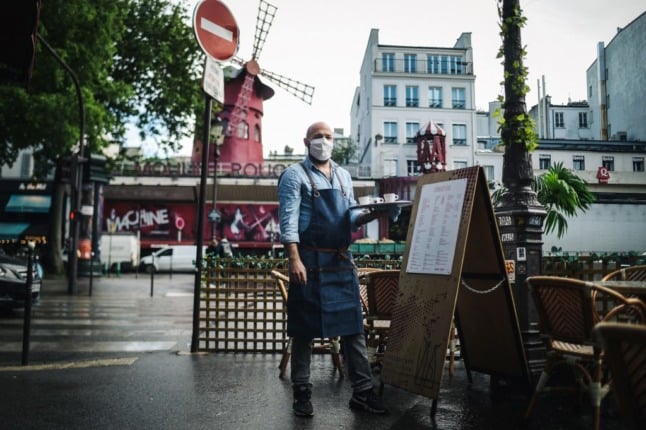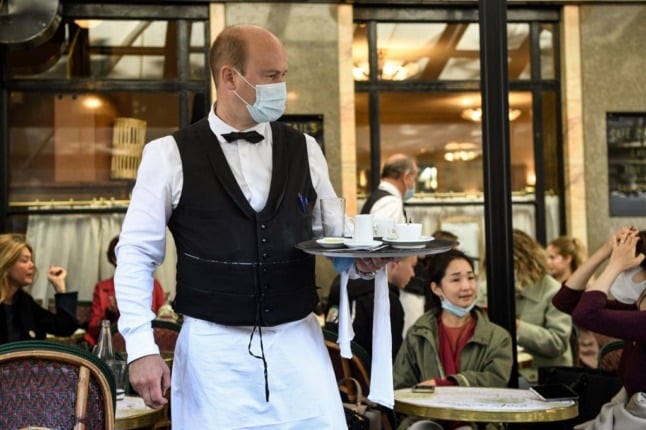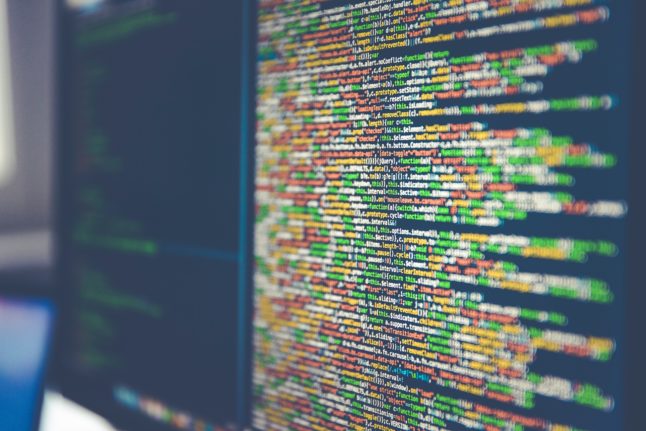Stage 3 of France’s reopening on Wednesday brings several big changes for the country’s embattled hospitality industry – cafés, bars and restaurants can reopen their indoor spaces for the first time since October 2020 and the curfew moves back to 11pm, ensuring a more usual nighttime trade.
Just off Arts and Métiers, on Rue des Gravilliers, sits Cafe L’Attirail. Pre-Cvoid, this bar was jam packed with students and young people in search of a cheap pint and the establishment’s famous garlic potatoes which are always offered free along with a drink purchase.
“11pm will be much better … 9pm is difficult because that’s the time people are experiencing their peak enjoyment, so to cut it short is a shame,” says the bar’s owner.
“It’s better than it was before, but people finish work and have to rush to have a drink before 9pm … 11pm will be much better and will make people’s lives less stressful,” says Karim, one of the brothers who co-own Le Village, a popular bar in Paris’ 18th arrondissement.
READ ALSO Bars, curfew and travel – what changes in France on Wednesday
With many of Paris’ bars and restaurants focused upon evening hospitality, many didn’t reopen on the first allowed date of May 19th.
For many, opening up until 9pm simply wasn’t worth it and limited space on terraces as well as rollercoaster weather forecasts meant the risk was too high.

New rules
From Wednesday, cafés will be able to operate 100 percent of their outside space, as well as 50 percent of their indoor space, although tables will still be limited to six people and bar service banned.
In addition to these restrictions, owners are now required to collect customer details so that they can be traced in the case of a Covid outbreak.
Most have taken up the government’s offer of a QR code that can be scanned with a smartphone to collect details from each customer, but plenty also have a pen-and-paper option for people who prefer the old-fashioned way.
READ ALSO QR codes and sign-ins – how France’s reopened restaurants will keep track of customers
Details are only required from customers eating or drinking inside, it is not obligatory for on the outdoor terraces.
At Bistrot Marguerite, just off Paris’ Hotel de Ville, there’s a sign prompting people to download the government’s TousAntiCovid app in order to be able to scan these codes.
“We’ve put out all the resources, but it’s whether the customer is willing to download the app or record their details on the notepad. That’s something the government can’t force customers to do,” says waiter Thomas.
‘I don’t have a smartphone’
Jules, a graphic designer, sits on the terrace with friends for a post-work pint.
“It seems like people are assuming customers won’t check-in with the QR code, but I think myself and my friends would if we were all going for a meal.
“It might be different if it was just drinks because there’s less formality, but we’d probably sit on a terrace [where QR check-in codes are not obligatory] for a drink anyway.”
Annette, a retired teacher who lives in the 4th arrondissement, is enjoying a coffee in the sunshine at the Bistrot.
“I don’t have a smartphone” she says, “and even if I did, I’m not sure I’d download the application in order to scan the code … it seems like a lot of effort to have a coffee inside on a rainy day”.
Madeline and Juliette, aged 17 and 18, are also sat on the terrace enjoying a cold drink whilst completing their homework.
“I don’t see the problem … the government has said they won’t be collecting data from a person when that person scans the QR code. If it means a fast and easy way of keeping track and control of potential cases, people should realise it’s important” says Madeline.
Juliette agrees: “If the café or restaurant has gone to the effort of making somewhere safe, customers should respect that and obey the rules”.

‘Tourists won’t want to bother with all this’
The QR codes can only be scanned with the French Covid-tracking app TousAntiCovid. Although the app is available for non-French phones, establishments that cater for tourists worry that explaining all this will be complicated and difficult.
At Le Départ Saint Michel, close to Notre-Dame and usually popular with tourists, waiter Antoine is concerned.
“In the summer, this place is so busy throughout the day and even into the night” he says, “we have people from all over the world visiting, and with the borders opening up to tourists soon, it will be really difficult to keep track of … especially with so many language barriers [amongst tourists].
“They will have been on holiday for the first time in a long time, it’s doubtful they will want to have to worry about such things.”
Terrace only
And some owners have decided that reopening interiors is just too difficult – especially since the city of Paris has announced that the temporary expansion of terraces can become permanent.
Petit Pache, a natural wine bar in the 11th arrondissement, won’t be opening up the interior.
“The inside is too small for social distancing … and we’ve put all our interior furniture outside on the terrace so now there’s nothing left for the inside” says Maxence, who co-owns the bar with Elodie.
“We decided to capitalise on the terrace as it’s summer.”
Charlotte is the co-owner of Chinoiseries, a Chinese cuisine take-out business and a cook at Echo, a popular restaurant in the 2nd arrondissement.
“I wouldn’t be surprised if smaller restaurants or those that have been open already take a bit of a hit as their customers spread out to these newly opened places,” says Charlotte.
“But I definitely think there will be a boom within the industry and I’ll be prepping for busier services. Also, many restaurants, especially higher end ones, have been shut since the second lockdown so I imagine people will be rushing to those.
“It feels like one of the last thresholds to cross for life to return to normal again,” she added.



 Please whitelist us to continue reading.
Please whitelist us to continue reading.
Member comments